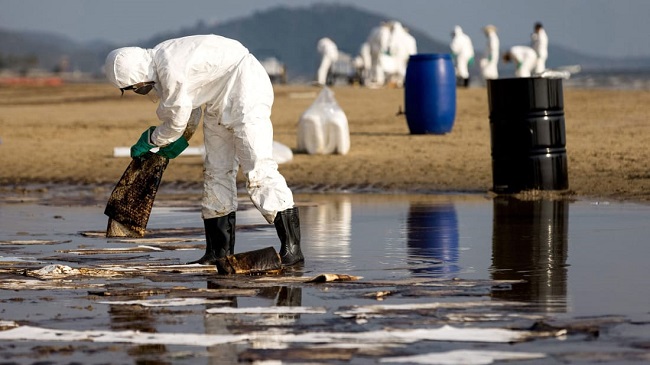Movements across 19 countries of both the Global South and the Global North will march together on Friday, February 4, 2022, in what looks like an unprecedented international action against neo-colonialism, corporate power and environmental destruction, standing in solidarity with Most Affected People and Areas (MAPA).

Communities and activists on the front lines of the environmental crisis are asking the world to join their fight for the oceans, the seas and global justice, under the hashtag #oceanazo.
“Oceans act as geographic barriers between continents, but on Friday we will show how they connect us,” they submitted.
According to them, multiple oil spills around the world in just the last few weeks demonstrate the harms caused by fossil fuel extraction: Chevron (US) is said to be responsible for approximately 50,000 litres spilled in Thailand last week, and days later almost two million litres were reportedly spilled in Ecuador, polluting Amazonian ecosystems for the second time in only two years.
In Perú, a catastrophic oil spill by European oil and gas multinational Repsol is currently affecting over 20 beaches, devastating marine life and ecosystems, bringing several endangered species to the brink of extinction, and threatening the health and livelihoods of thousands of people. The company denies responsibility for the spill and is refusing to pay for the clean-up.
On the coastlines of Argentina and South Africa, thousands are mobilising against European fossil fuel corporations, including Shell, Equinor and Total, who are poised to conduct seismic surveys, deepwater drilling and fracking, threatening similar devastation to communities, marine wildlife and the environment for corporate greed.
The activists added: “These are just some examples of how multinational corporations are destroying the homelands of local communities and Black, Indigenous and People of Colour globally, often employing methods – like fracking – that are banned in their homelands due to their devastating effects on ecosystems and human health. To extract fossil fuels, they turn areas of the Global South into sacrifice zones, designating as disposable entire populations. They will not stop their neo-colonial exploitation unless they feel pressure from the streets.
“This is why activists are now responding globally to stop these corporations from polluting the oceans, disturbing marine ecosystems, destroying the livelihoods of millions, while at the same time greenwashing their businesses in the Global North to perpetuate their profits.”
Osver Polo Carrasco of The Citizen Movement against Climate Change (Mocicc) in Perú explains: “We demand just and collective energy sovereignty against exploitative multinational corporations; a halt to the decrees and legislations that promote hydrocarbons; an end to extractive projects in the sea, land and jungle; sanctions against corporations that have polluted and damaged these peoples and territories; and that corporations pay reparations to those already affected.
“We are coming together internationally as a global rebellion of coastlines, affected communities and supporters, building a multinational resistance against a multinational threat. From South Africa to the Netherlands, from Argentina to Norway, from Perú to Germany, and many more, demonstrations and creative actions will be performed by a vast diversity of movements at corporate headquarters, national embassies, on affected beaches and in the streets of all participating countries.”
